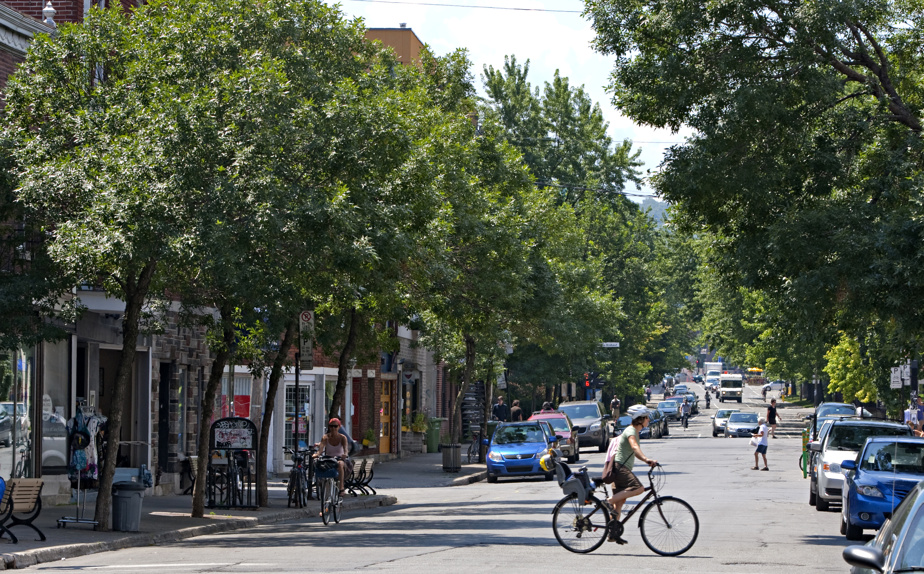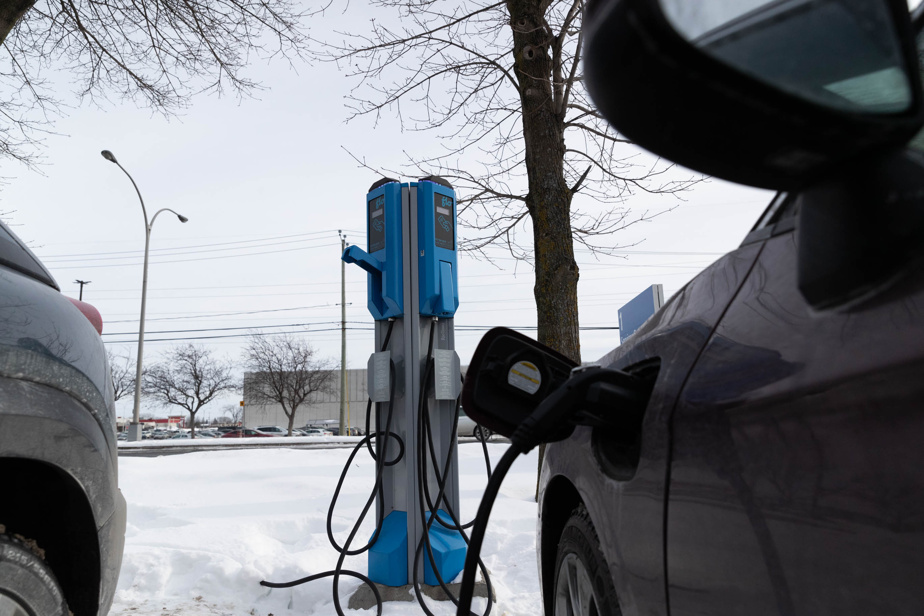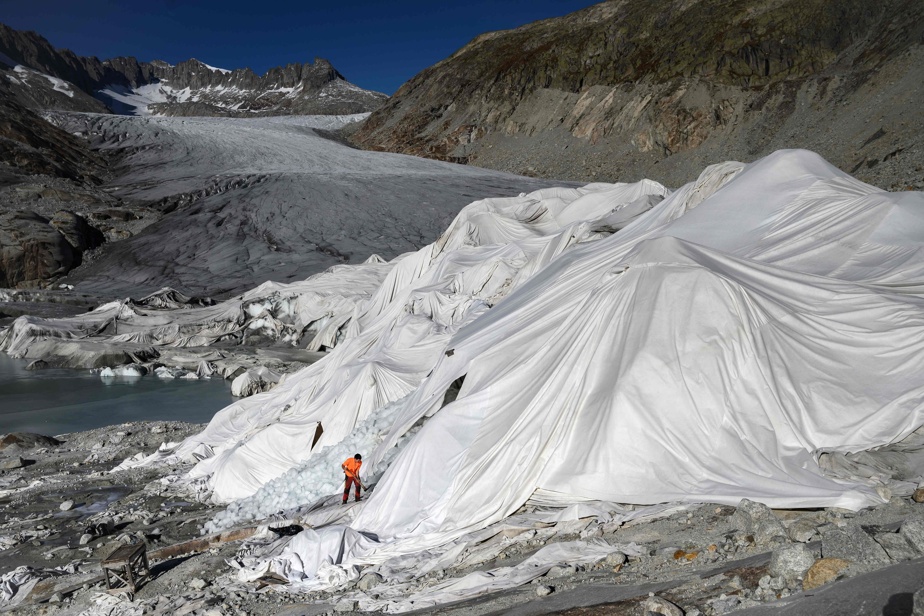Posted at 7:00 am
time issue
Has humanity failed? Is it too late to act on climate change? The simple answer is no. As climate scientist Zeke Hausfather has pointed out, there is also no deadline after which all efforts will be in vain. For example, there is increasing evidence that by 2040 the global temperature will rise by 1.5°C compared to pre-industrial times. But any additional degree, that is, a tenth of a degree increased, will magnify the already significant consequences. As Hausfather explained in a Twitter post last summer, humanity nonetheless complicates itself by delaying difficult decisions. The researcher wrote that if the world had begun reducing its emissions since 2000, it would be like getting off a novice ski slope. However, after 20 years, the path to be descended is now classified as very difficult.
greening cities

Photo by Alain Roberge, Press Archives
A greener city would mitigate the effects of the heat.
A recent study by Statistics Canada found that cities across the country are becoming…increasingly gray. Three-quarters of large and medium-sized Canadian cities were less green in 2019 than they were in 2001. Montreal, like Toronto, Vancouver, Calgary, and Edmonton, lost green space during this time. Greening cities helps reduce greenhouse gas emissions. Tree planting also reduces urban heat islands. In Montreal, for example, it will get hotter by the end of the century. According to the Ouranos Consortium, which specializes in the study of climate change in Quebec, the average summer temperature will rise by about 6 degrees Celsius by 2100, in a scenario of higher greenhouse gas emissions. The average temperature in summer will exceed 26 ° C. There can also be up to 75 days in a year when mercury exceeds 30°C. The number of heat waves will increase significantly. A greener city would mitigate the effects of the heat.
Leave the carbon in the ground
A study published during COP26, in Glasgow, last November, made it possible to better quantify the amount of carbon stored in Canadian soil. This study by researchers at McMaster University for the Canadian division of the World Wide Fund for Nature (WWF) calculated that there are the equivalent of 384 billion tons of carbon in Canada’s soil. The highest percentage is found in Manitoba, at 110 billion tons. Quebec ranks fifth in the country with the equivalent of 45.7 billion tons. This is more than 10 times the amount of carbon that Quebec’s forests capture (4.3 billion tons). All this carbon is mostly found in peatlands and wetlands. Whenever these media are disturbed, CO2 release him. To compensate for these emissions, it is then necessary to reduce those emissions of human origin by the same amount. In order not to complicate life, it is preferable to leave all this carbon in the earth.
Limits of individual behavior

PHOTO MARTIN TREMBLAY, PRESS ARCHIVES
More and more experts say there are limits to placing the burden of relocation on individuals.
Recycling, composting and even driving an electric car: this has become the daily life of many Quebecers. But more and more experts argue that there are limits to placing the burden of relocation on individuals. According to René Audet, who teaches in the Department of Strategy and Social and Environmental Responsibility at UQAM, “We have to get out of the question of individual behaviour.” To achieve this, there must be greater restrictions, imposed by governments. The climate emergency requires the same approach, as using a seat belt, driving under the influence or smoking, which requires stricter laws to change behaviour. René Audi believes there will be more and more pressure on governments to force them to act.
Forbidden word: refusal
Recent survey of the scientific journal new world I calculated that humans make the equivalent of 100 billion tons of things of all kinds every year. However, the vast majority of these organisms are made from resources that are not infinite while producing very large amounts of greenhouse gases. A mathematical equation that is hardly sustainable in the medium and long term. In recent years, the concept of de-growth has increasingly been treated as the solution to the climate crisis. The word is taboo for many people, who see it as a synonym for poverty. But for René Audet, lowering growth also means less pollution and waste. It means implementing a circular economy that limits waste production as much as possible. The truth is that we should plan our economy differently. We are ready to have a good frank discussion about the ecological transition. »
global vision
One of the main conclusions of the latest IPCC reports is that a global vision is needed to deal with climate change. Because greenhouse gas emissions know no bounds. No matter where they come from, they end up in the atmosphere. According to the latest reading from the Mauna Loa Observatory located in Hawaii, the carbon concentration in the atmosphere showed 419.03 parts per million (ppm) on March 2. A year ago, on the same date, it was 417.98 ppm. After 400ppm, it would be difficult, if not impossible, to contain a temperature rise below 1.5°C. Another warning from the Intergovernmental Panel on Climate Change is that the consequences of climate change are multiplying above 1.5°C. One of the best examples is the ice caps at both poles. This usually allows the sun’s rays to be reflected off the ground. However, warming causes a rapid decline in this ice mirror, reducing its ability to reflect sunlight.
read more
-
- From 3.3 to 3.6 billion
- Number of people actually living in “highly vulnerable contexts” to climate change
Source: IPCC report
- 15 times more
- The rate of additional deaths between 2010 and 2020 attributable to floods, droughts and storms in the most vulnerable regions, compared to the least vulnerable regions
Source: IPCC report

“Subtly charming problem solver. Extreme tv enthusiast. Web scholar. Evil beer expert. Music nerd. Food junkie.”


